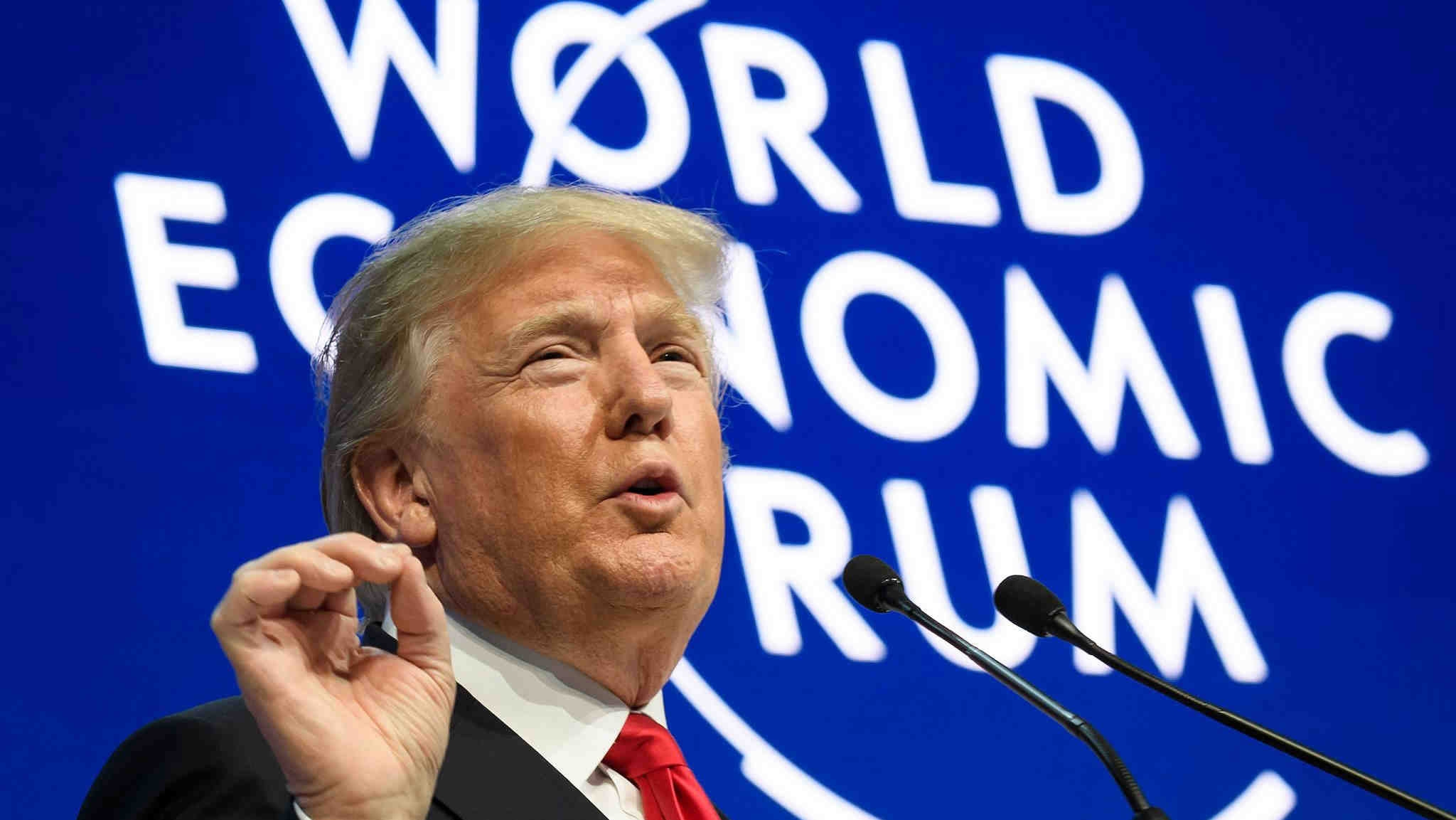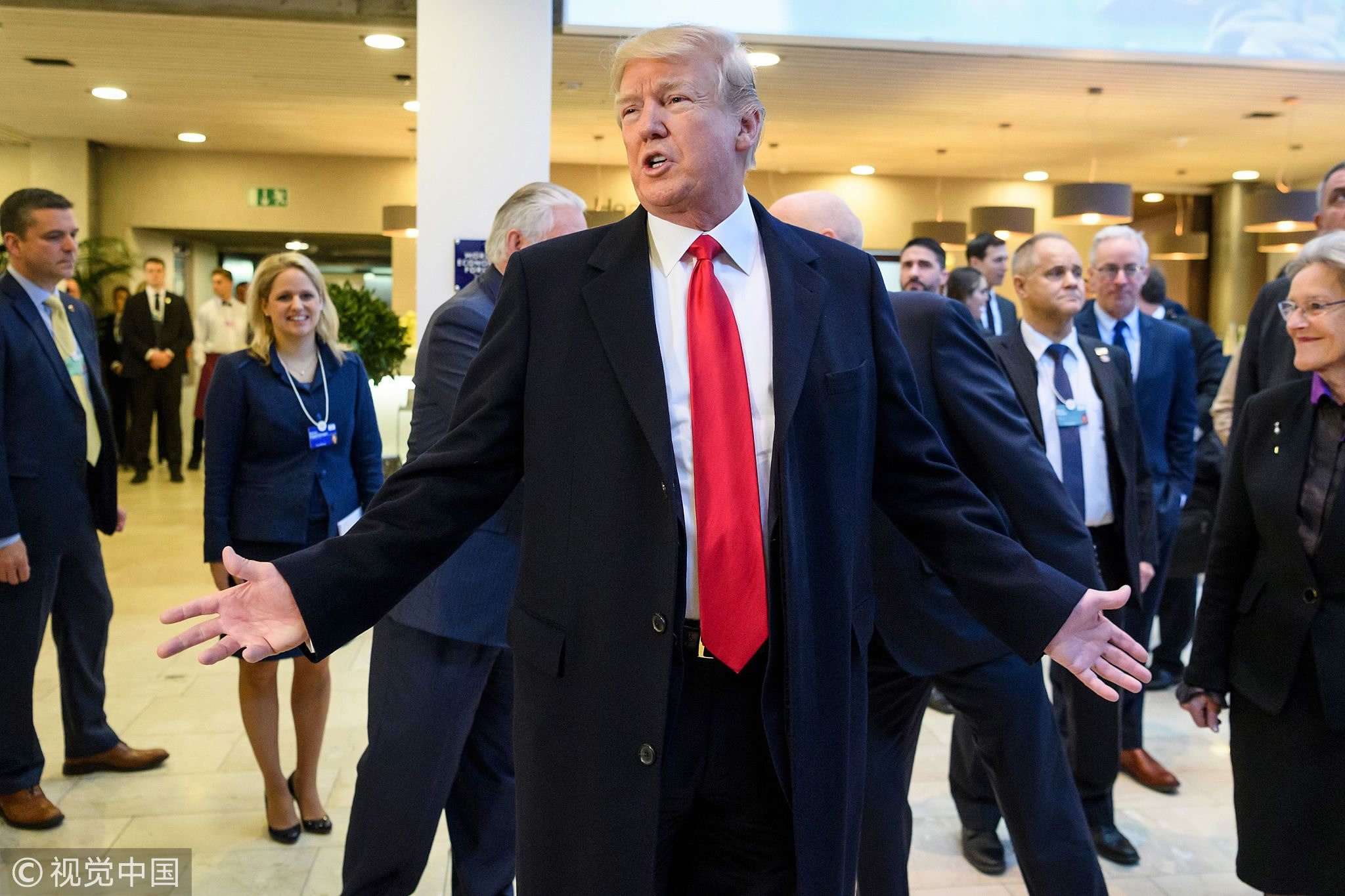
Opinions
13:19, 27-Jan-2018
Opinion: Trump in Davos set US, China on trade collision course
Guest commentary by Dr. John Gong

Davos is the Olympics of power and money. There were many alpha males in the 3,000-strong crowd, with some possessing power and others money. But few have both. As his gold signs on the roof of so many five-star hotels all over the world would testify, Donald Trump is one of the few.
Trump is the alpha male of alpha males. So as much as the Davos crowd detests everything his presidential campaign stood for, I suspect deep in their heart these billionaires and millionaires truly believe he is still one of them, and feel grateful to him for the extra billions resulting from his recent tax cut legislation in the US.
The US president reciprocated with a great PR sales pitch to the CEOs, booming that “America is open for business again.” He talked about the US economy coming back strong, 2.4 million new jobs created last year, the stock market’s “smashing one record after another” and 22 deregulations on average to each new regulation introduced.
He bragged about the impact of the tax reduction legislation, such as the hundreds of billions of corporate investments coming back to the US and the 4,000-US-dollar additional income for an average family (This number I strongly doubt).

US President Donald Trump responds to journalists upon his arrival to address the World Economic Forum (WEF) annual meeting in Davos, Switzerland, on January 26, 2018. /VCG Photo
US President Donald Trump responds to journalists upon his arrival to address the World Economic Forum (WEF) annual meeting in Davos, Switzerland, on January 26, 2018. /VCG Photo
That is all OK so far. But the worrisome part came when he started to talk about US trade policy. He began with the statement that “America first doesn’t mean America alone,” followed by his usual rhetoric about fair and reciprocal trade in reference to what is indisputably a bilateral approach that America now has to negotiating future free trade agreements.
Then he lashed out at unfair trade practices, a section of the speech that in my mind was unequivocally referring to China and China alone. The practices he mentioned include “massive theft of intellectual property rights, industrial subsidies, and the pervasive state-led economic planning.”
On intellectual property rights, Tom Bossert, a security adviser to US Homeland Security, later provided an extensive footnote during an interview on CNN, when he referred to the amount of online hacking targeting American companies that originates from China.
Now I can understand there might be many individual hackers in China doing this, but it is hard for me to fathom that this could be a deliberate state-sponsored activity all attributed to the Chinese government. So without showing solid evidence, labeling it as state behavior is a quite a stretch in imagination.

VCG Photo
VCG Photo
State subsidies admittedly do exist in China, especially at provincial level. This is something the central government is rectifying and improving. But let’s remember that America has its own fair share of state subsidies as well, for example covering agricultural products and Boeing airplanes.
But what concerns me most is the argument about “pervasive state-led economic planning.” China is a transition economy evolving from a former Soviet-style planned economy. The state-led planning legacy still lingers to various degrees in many sectors, even though the government strives to move more towards a market economy. Just two days ago, senior Chinese official Liu He’s Davos speech mentioned the market’s foundational role in allocating resources.
Friday’s Trump speech however, sends out a strong signal that from now on China’s transition economy status will be used as an argument for firing up trade frictions. This touches upon the very fundamental fabric of China’s social and economic system and there would be no room for negotiation in this aspect.
In that regard, it appears stormy times are ahead this year and that the two largest economies in the world will be on a collision course on trade. Trump’s Davos speech does not offer anything new to the rest of the world, but bodes awfully ill for China.
(John Gong is a professor at the University of International Business and Economics. The article reflects the author’s opinion, not necessarily the view of CGTN.)

SITEMAP
Copyright © 2018 CGTN. Beijing ICP prepared NO.16065310-3
Copyright © 2018 CGTN. Beijing ICP prepared NO.16065310-3